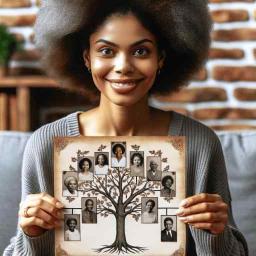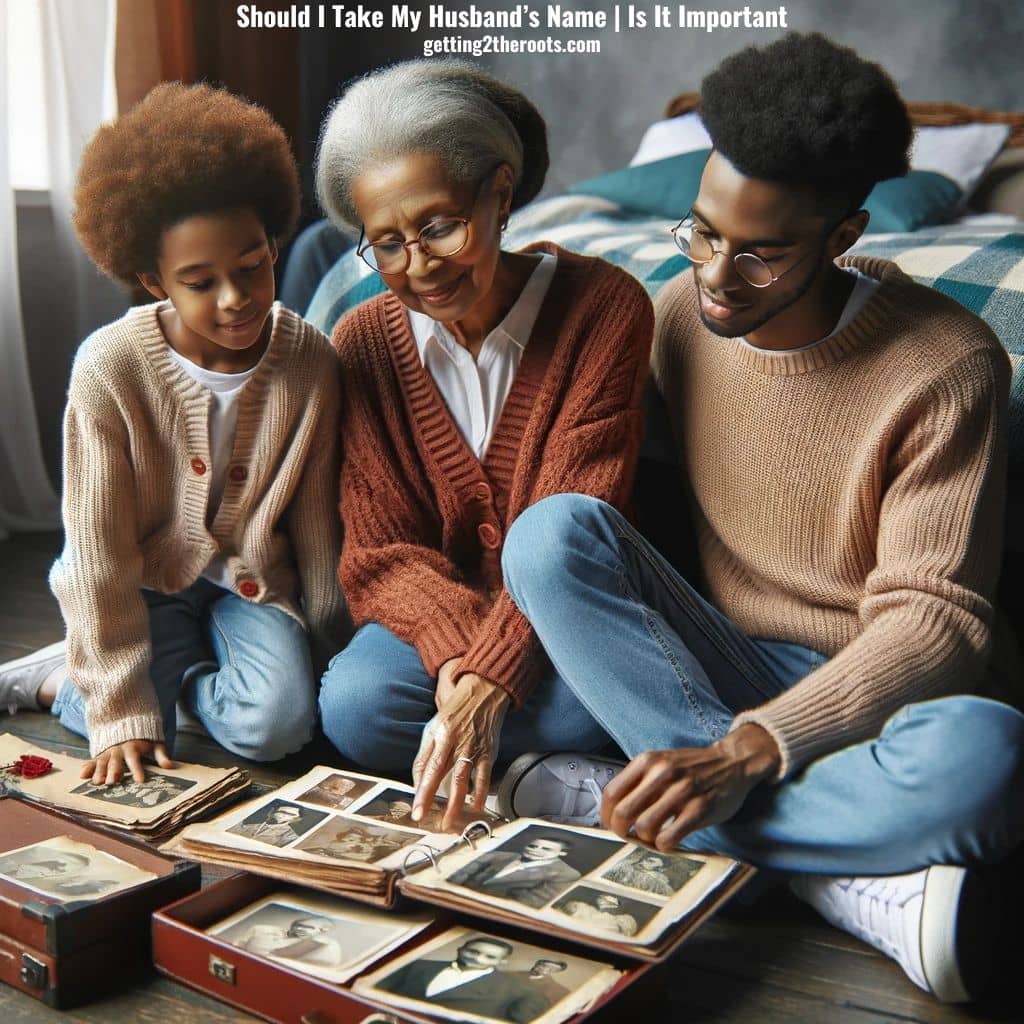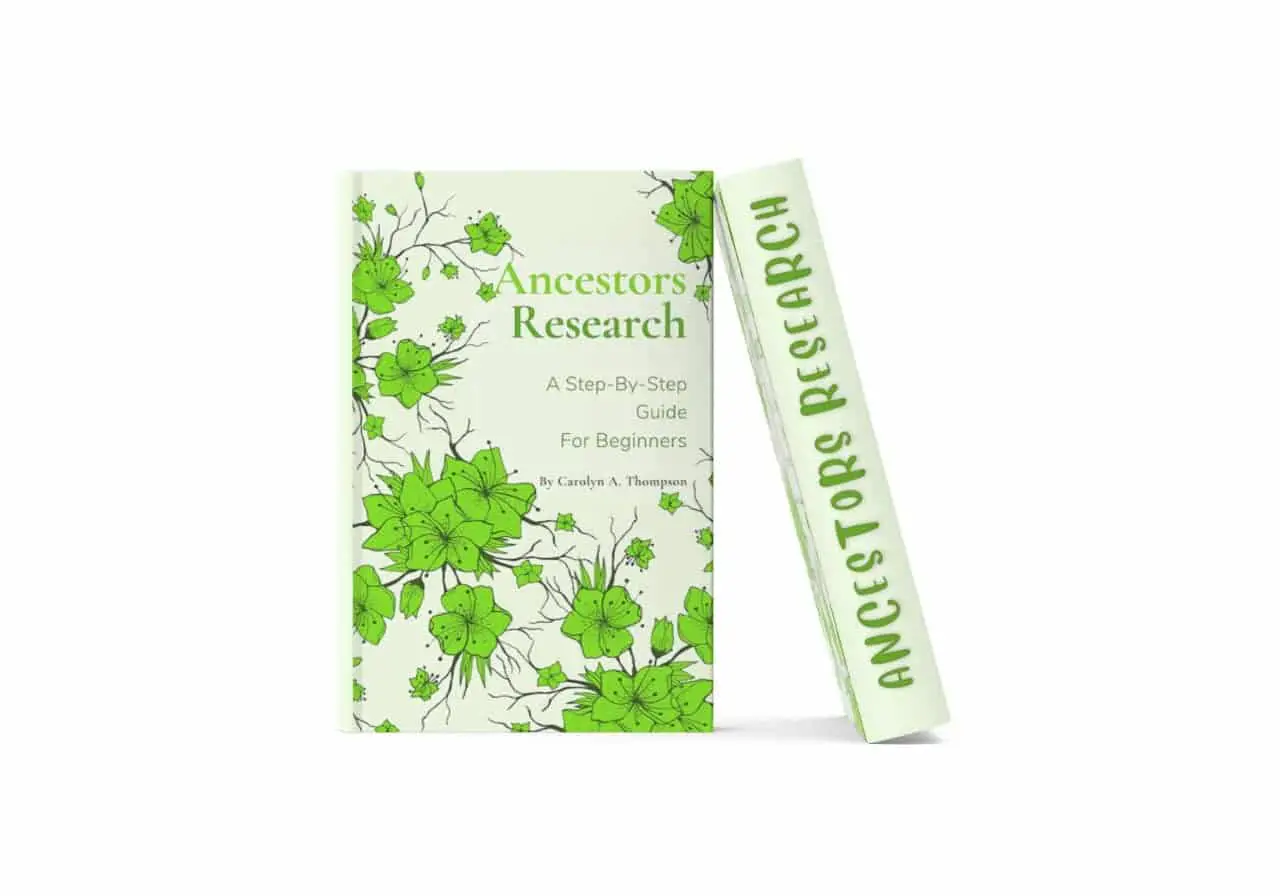In a world where traditions are constantly evolving, the question of whether or not a woman should take her husband’s name remains a topic of debate.
While some women see it as a symbol of unity and commitment, others view it as a loss of personal identity.
Ultimately, the decision is a personal one, but there are several compelling reasons why women should consider keeping their maiden names in 2024.
This article explores the ongoing discussion about adopting one’s husband’s last name, examining its significance in the modern era and its potential impact on family history and individual identity.

Embracing Identity: Why I Kept My Maiden Name
Forty years ago, as I stood on the brink of matrimony, a wave of excitement washed over me.
The notion of not taking my husband’s name hadn’t even flickered in my mind—until a pivotal moment on my wedding day.
This story, revolving around my decision, intertwines with the essence of my identity, and yes, it involves my husband’s name, but in a way that’s uniquely mine.
A Revelatory Counsel
The wedding was a whirlwind of joy and anticipation. As part of the ceremony, our Pastor offered us counsel. His words, intended to guide me, sparked an unexpected revelation within me.
Carolyn, today you are marrying JR. You will take his last name, as you will belong to him,” he advised.
This statement, intended as a norm, jolted me. The idea of ‘belonging’ to someone else didn’t sit right with me.
In my heart, I felt a deep connection to my Creator and an unshakeable sense of self. The very thought of adopting my husband’s name suddenly seemed like an erasure of my identity.
A Decision for Self-Identity
At that moment, a decision crystallized within me. I realized that keeping my last name was more than a symbolic act; it was a declaration of my spirituality.
This wasn’t about defiance or distancing myself from my husband. Rather, it was about preserving a part of who I am.
As I pondered over the pastor’s words, a new understanding dawned on me. My last name wasn’t just a label.
It was a legacy, a connection to my past, and a bridge to my future. Retaining it wasn’t about rejecting my husband’s name; it was about knowing I belong to my creator and myself.
Navigating the Path of Marriage with My Name
Our journey as husband and wife began, but with a twist – I hadn’t taken my husband’s name. This decision, though personal, wasn’t always easy to explain or defend.
Society often expects women to adopt their husbands’ names, seeing it as a symbol of unity. But for me, unity in marriage wasn’t about names; it was about mutual respect, love, and understanding.
The choice to keep my last name has been a constant reminder of my identity and values. It has taught me the importance of staying true to oneself, even when it goes against the grain.
My husband’s name is a part of our shared life, but my name is a testament to my individual journey.
Conclusion: A Personal Choice in a Shared Journey
Reflecting on my decision not to take my husband’s name, I realize it was about more than just a name. It was a stand for my identity and beliefs.
This choice may not be for everyone. But for me, it was the right one, even though, at that time, I didn’t realize just how important last names are, especially for genealogy research.
If you’re interested in delving into your family history and uncovering your roots, we invite you to read our article, “Ancestors’ Research | Free Beginner’s Guide.”
It’s a treasure trove of insights for anyone eager to connect with their past and discover their ancestors.

Women’s Choices and Husband’s Names in the US
The Evolution of Naming Traditions in Marriage
The tradition of a woman adopting her husband’s name in the United States has been a notable aspect of patriarchal societies.
In these societies, men have historically dominated in:
- Political.
- Social.
- Familial roles, significantly influence marital norms.
- Including the practice of changing one’s name after marriage.
The Impact of Patriarchy on Naming
- The Dominance of Men: Patriarchy has been marked by the male authority in establishing societal and familial norms. This dominance extends to traditions related to marriage, including the expectation that a woman would adopt her husband’s name.
- Symbolic Shift in Identity: The act of a woman changing her last name to her husband’s has traditionally symbolized a transfer of allegiance from her birth family to her husband’s family, echoing the notion of male ownership and authority.
- Cultural Prevalence: While this practice is observed worldwide, it is deeply rooted in the United States, reflecting the nation’s historical and cultural ties to patriarchal values.
Shifting Attitudes Toward Name Adoption in Marriage
Embracing Individual Identity and Empowerment
As societal views evolve, the tradition of adopting a husband’s name is increasingly seen through the lens of personal identity.
Women are now more frequently asserting their right to retain their maiden names, merge them with their husbands’, or entirely adopt their husband’s names, based on individual preference.
Professional and Personal Considerations
Particularly for professional women, keeping their maiden name is often crucial for maintaining continuity in their career and public persona.
A name change can have significant impacts on their professional identity and recognition.
Moving Towards Equality
The cultural shift towards egalitarian views is challenging traditional patriarchal expectations.
The decision surrounding a husband’s name is now more commonly viewed as a mutual choice and a matter of respect within the marriage.
The Contemporary American Context
In modern America, the choice of a name in marriage signifies personal autonomy, moving away from strict patriarchal norms.
This shift towards a more inclusive and equal partnership model in marriage recognizes that naming is one of many shared aspects of married life.
Conclusions: Empowerment and Personal Choice
The ongoing conversation about a husband’s name in the United States transcends mere tradition.
It speaks to the core of identity, tradition, and personal choice, reflecting a significant societal shift towards empowering women to shape their narratives.
- Whether a woman chooses to keep,
- Her maiden name.
- Blend it with her husband’s.
- Adopt his name.
- It is a deeply personal decision,
- Emblematic of her story,
- Beliefs,
- Her place in a society that increasingly values individual identity alongside marital unity.

Women of the World: Global Perspectives on Husband’s Names
Diverse Naming Traditions Across the Globe
The tradition of women changing or retaining their names after marriage varies significantly across the world, reflecting a rich tapestry of cultural, legal, and social practices.
These naming conventions not only highlight the diverse ways in which societies view marriage and identity but also shed light on the broader cultural contexts that shape these practices.
Naming Practices in Various Countries
Name Retention and Hyphenation: In many countries, women retain their birth names after marriage. Some cultures embrace the practice of hyphenating the birth name with the husband’s last name, creating a blended family identity.
Name Change Tradition: In countries like England, Germany, and Japan, it is common for a woman to adopt her husband’s last name. This practice is often seen as a symbol of unity and familial cohesion.
Countries Favoring Birth Name Retention: In nations such as Spain, Korea, Malaysia, France, Greece, China, and Italy, most women traditionally keep their birth names even after marriage. This practice may be influenced by legal norms, societal values, or historical traditions.
Islamic and Latin Countries: In many Islamic and Latin countries, it is customary for women not to adopt their husband’s names.
This reflects both cultural and religious considerations, emphasizing the importance of individual identity within the marital union.
Cultural and Societal Influences on Naming Decisions
The decision regarding a husband’s name is deeply influenced by the cultural and societal norms of a woman’s country of origin or the culture she most identifies with.
These norms provide a framework within which individual choices are made and understood.
Cultural Identity and Naming Choices
- Cultural Norms: The prevailing cultural norms in society play a crucial role in shaping attitudes towards naming conventions in marriage. These norms often reflect broader societal values and historical contexts.
- Personal Identification: For many women, the choice to retain, change, or hyphenate their name is also a reflection of personal identification with their cultural or familial heritage.
Conclusion: A Mosaic of Naming Traditions
In summary, the practice of women adopting their husband’s name, retaining their birth name, or choosing a hyphenated combination is a complex and varied phenomenon worldwide.
It’s a reflection of the diverse cultural, legal, and social landscapes that shape individual and collective identities.
This global mosaic of naming traditions underscores the rich diversity of women’s experiences and choices, emphasizing that the naming decision in marriage is as varied as the cultures and societies from which it emerges.

The Significance of Names in Personal and Cultural Identity
The Essence of a Name
Names are not just mere labels; they are a profound part of our identity, carrying deep personal and cultural significance.
They are a symbol of our individuality, linking us to our family’s heritage and the cultural milieu in which we were raised.
Names can encapsulate the history and significant events that have shaped our personal and collective identities, serving as a bridge between our past, present, and future.
Cultural Roots and Personal Connections
- Cultural Heritage: A name often reflects the cultural background and traditions of the family into which we are born. It can signify cultural practices, ancestral lineage, or specific characteristics valued in our community.
- Family Legacy: Names can carry the legacy of previous generations, connecting individuals to their familial roots and the broader story of their lineage.
The Impact of Mispronouncing or Forgetting Names
Mispronouncing or forgetting someone’s name can have a deeper impact than is often realized. It can lead to feelings of being undervalued or misunderstood, as a name is integral to one’s sense of self and belonging.
The Emotional Significance
- Feeling Devalued: When our names are mispronounced or forgotten, it can feel as though an essential part of our identity is being overlooked, leading to a sense of marginalization.
- The Need for Recognition: Correctly pronouncing and remembering names is a sign of respect and acknowledgment of an individual’s unique identity and background.
The Decision to Change Names in Marriage
In various cultures, the tradition of women giving up their birth names upon marriage still prevails, despite the intrinsic importance of names.
This practice, deeply rooted in societal norms and traditions, can have a profound impact on a woman’s identity.
Balancing Tradition and Identity
- Cultural Expectations: In some cultures, changing a name after marriage is seen as a symbol of unity or a rite of passage. However, it can also represent a conflict between personal identity and cultural expectations.
- Personal Significance: For many women, the decision to keep, change, or hyphenate their name in marriage becomes a significant choice, reflecting their personal beliefs, identity, and the balance they wish to strike between their heritage and their marital relationship.
Conclusion: Names as Reflections of Identity and Choice
Names hold a special place in our lives, embodying our individuality, cultural heritage, and family history.
The practice of changing or retaining a name, especially in the context of marriage, highlights the complex interplay between personal identity, cultural norms, and societal expectations.
Understanding and respecting the significance of names, therefore, is crucial in acknowledging and valuing the diverse tapestry of human identities.

Last Names and Genealogy Research: Navigating through History
The Challenge of Tracking Ancestry in a Digital Age
In a world where Gen-Xers and younger generations are accustomed to the conveniences of cell phones and computers, the concept of manual record-keeping seems almost alien.
Historically, many records were manually logged, a method prone to loss and damage, leading to gaps in historical data that are challenging for genealogy research.
The Shift from Manual to Digital
Evolution of Record-Keeping: The transition from manual to digital record-keeping marks a significant shift in how we store and access historical data.
However, this shift also means that older records, if not digitized, may be lost or inaccessible.
The Implications of Name Change in Family History Research
Name changes, particularly for women who adopt their husband’s names, present a significant hurdle in genealogy research.
This practice can obscure the lineage and make tracing family history through generations more complex.
Tracing Women’s Lineage
The Brick Wall in Genealogy: A common issue in genealogy research is hitting a ‘brick wall,’ where it becomes difficult to trace an individual’s lineage due to a lack of records or name changes.
For example, the birth names and parental lineage of my ancestors, Mary Jefferson and Kathy Kilgore, remain elusive, demonstrating this challenge.
The Importance of Last Names: Last names are critical in genealogy as they can provide clues to a person’s heritage and familial connections.
The story of my great aunt, Vina Creal, illustrates the complexities that arise when women change their names.
Her disappearance from census records after a certain age raises questions: did she marry and change her name, or did something else happen? I invite you to read her story, “I Found My Great Aunt, Vina Creal.”
Reflecting on Personal Decisions and Cultural Norms
The decision to keep or change one’s last name in marriage is deeply personal and can have far-reaching implications, not only for individual identity but also for family history research.
Personal Choice and Historical Context
Revisiting Past Decisions: My own decision not to change my last name was reaffirmed years later when I began delving into my family history. This choice helped maintain a clear lineage in my genealogical research.
Cultural Reflections: The question of whether to adopt a husband’s name is a topic of ongoing debate.
In 2024, it raises questions about the importance of tradition versus individual identity. Why do many women still choose to change their names, and does this signify a loss of family identity?

Conclusion: The Intersection of Names, Identity, and History
In conclusion, the practice of changing last names in marriage, particularly common for women, has significant implications in genealogy research.
It not only affects the continuity of family history records but also touches on deeper questions about cultural traditions and personal identity.
As we continue to navigate these choices, it’s important to consider how such decisions shape our understanding of family history and our connection to the past.
Frequently Asked Questions (FAQ): Husband’s Name and Women’s Choices in Genealogy
- Q: How does a woman changing her last name affect genealogy research? A: Changing a last name can create challenges in genealogy research, often leading to ‘brick walls’ where tracing a family line becomes difficult. It can obscure connections to maternal lineage and complicate the tracing of ancestral roots.
- Q: Why do women traditionally change their last names after marriage? A: Traditionally, women change their last names to their husband’s as a symbol of unity and familial cohesion. This practice is rooted in cultural and societal norms and varies greatly across different cultures.
- Q: Is it becoming more common for women to keep their maiden names? A: Yes, it’s increasingly common for women to keep their maiden names, especially in Western cultures. This shift reflects changing societal attitudes towards marriage, individual identity, and professional continuity.
- Q: Can keeping a maiden name make genealogy research easier? A: Keeping a maiden name can simplify genealogy research by maintaining a clear connection to the maternal family line, making it easier to trace ancestry and family history.
- Q: Are there cultural differences in the practice of changing last names? A: Yes, cultural differences significantly influence the practice of changing last names. In some cultures, women traditionally retain their maiden names, while in others, they adopt their husband’s name. These practices are deeply rooted in the cultural, legal, and social frameworks of each society.









